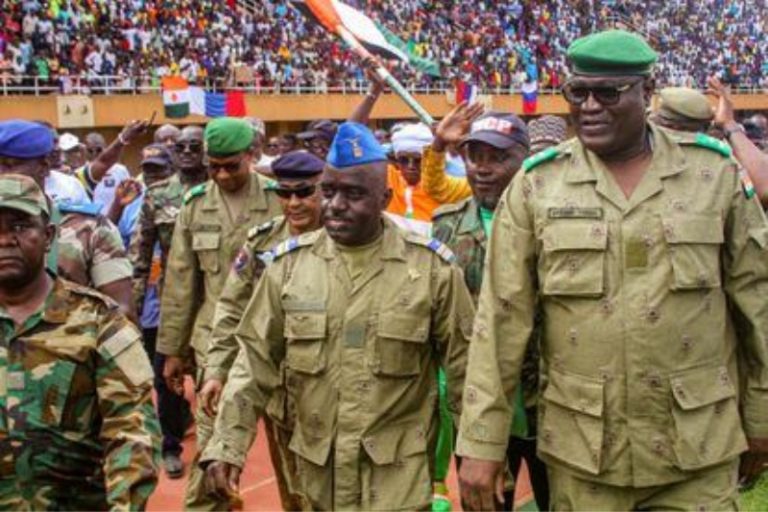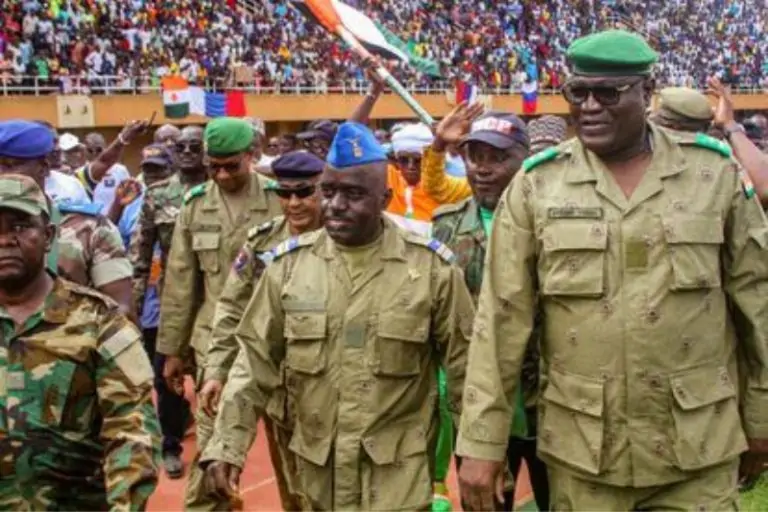

nigers political crisis deepens ecowas rejects the juntas sanctions
Last updated on December 9th, 2023 at 04:59 pm
Amidst Niger’s ongoing political turmoil, the recent verdict by the ECOWAS Court denying the junta’s appeal to lift sanctions has deepened the nation’s predicament. The court’s dismissal, rooted in the illegitimacy of the de facto government and its unconstitutional rise to power, poses a significant setback in resolving Niger’s tumultuous state.
These sanctions, including border closures and frozen assets, have dealt a severe blow to Niger’s economy, exacerbating food scarcity and medication shortages. The ordinary citizens, already facing hardships, find themselves in an increasingly dire situation due to these measures.
In response to the junta’s appeals, ECOWAS remains resolute, refusing to extend the timeline for a return to civilian rule without the immediate release and reinstatement of ousted President Bazoum. Condemnation of the coup from international quarters persists, resulting in reductions in aid and development support from several Western nations.
The economic strain has compelled Niger’s military administration to propose a drastic 40% cut in the 2023 national budget. This revised plan seeks to prioritize security spending and civil personnel salaries amidst a sharp decline in revenues.
Niger, known for its uranium, gold, and oil reserves, is seeking alternative partnerships and looking inward to navigate these economic challenges. However, with sanctions hindering trade and international relations, the path to financial stability remains uncertain.
Amidst these challenges, humanitarian organizations like Doctors Without Borders highlight the adverse effects of sanctions on Niger’s population. They emphasize the urgent need to reconsider these measures to alleviate the growing humanitarian crisis facing ordinary citizens.
The ECOWAS Court’s recent ruling denying the junta‘s appeal to ease sanctions has exacerbated Niger’s political and economic turmoil. These sanctions, resulting in dire socio-economic consequences, have pushed the nation deeper into crisis. The steadfastness of ECOWAS, coupled with international pressure, has amplified the economic strain, forcing proposed budget cuts that prioritize security amidst dwindling revenues. As Niger endeavors to navigate these challenges and seeks alternative partnerships, the humanitarian crisis facing its populace remains a pressing concern in the midst of an uncertain future.
Canadian companies have expanded their presence as major African mining stakeholders and invested more than $37 billion. Africa holds the…
The South African government wants people to plant one million trees across the nation within a single day on September…
The government's statistics regulator showed that South African inflation stayed at 3.2% during February and rose below the projected 3.3%.…
Keywords: Cape Town, African Energy Chamber, Africa, The 2025 African Energy Week (AEW) will host the top energy leaders from…
Recent research shows that Professor Abdessamad Faik believes Africa is at an important energy choice point as renewable-powered hydrogen allows…
The United States plans to shut down its Johannesburg consulate after Sandton Drive gets renamed to Leila Khaled Drive even…
This website uses cookies.